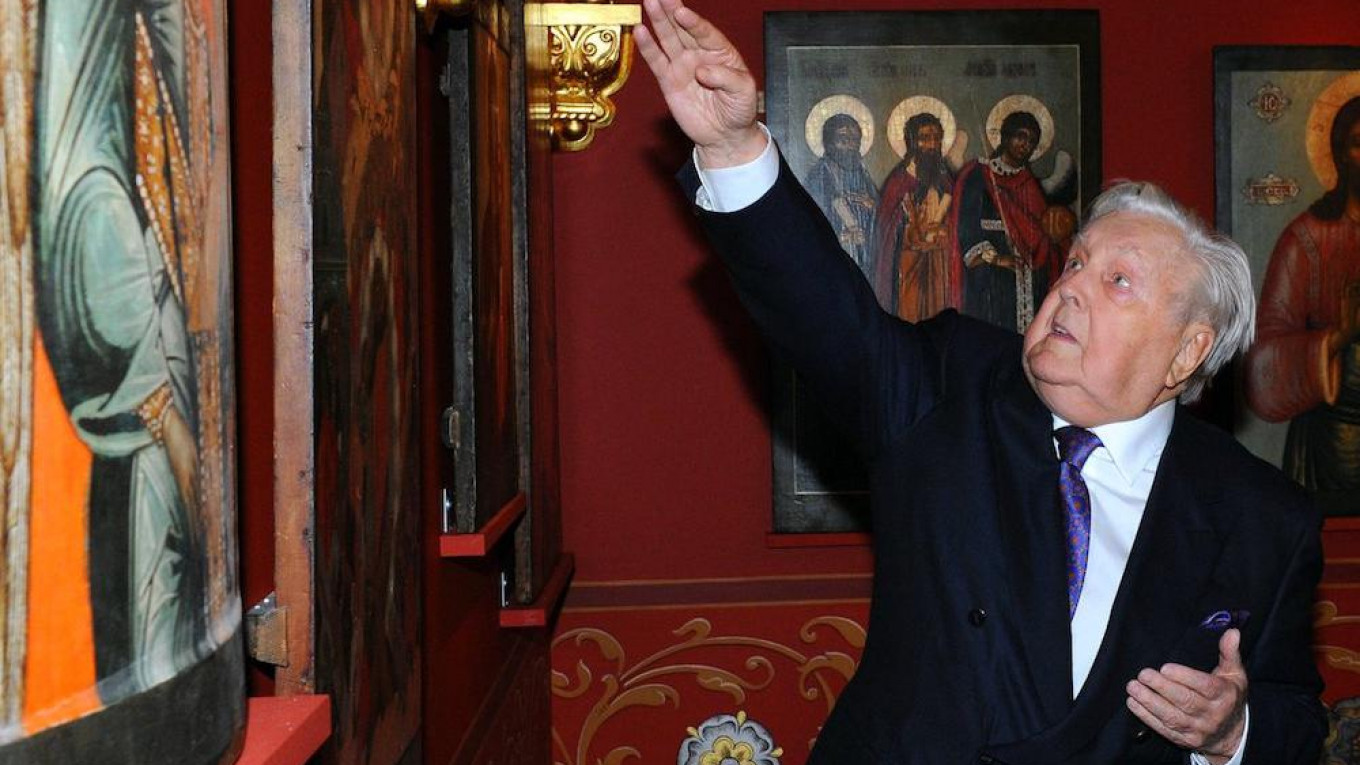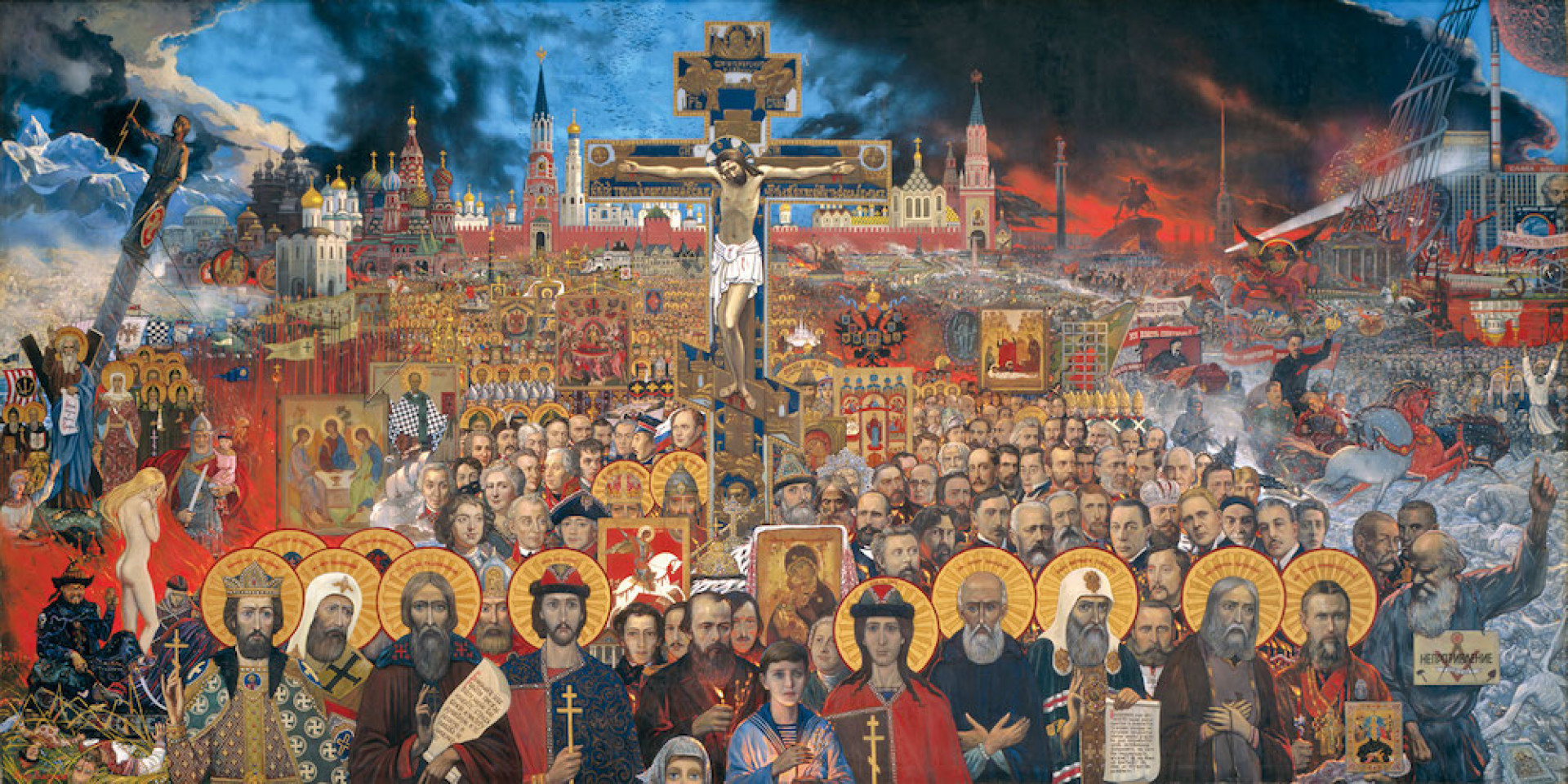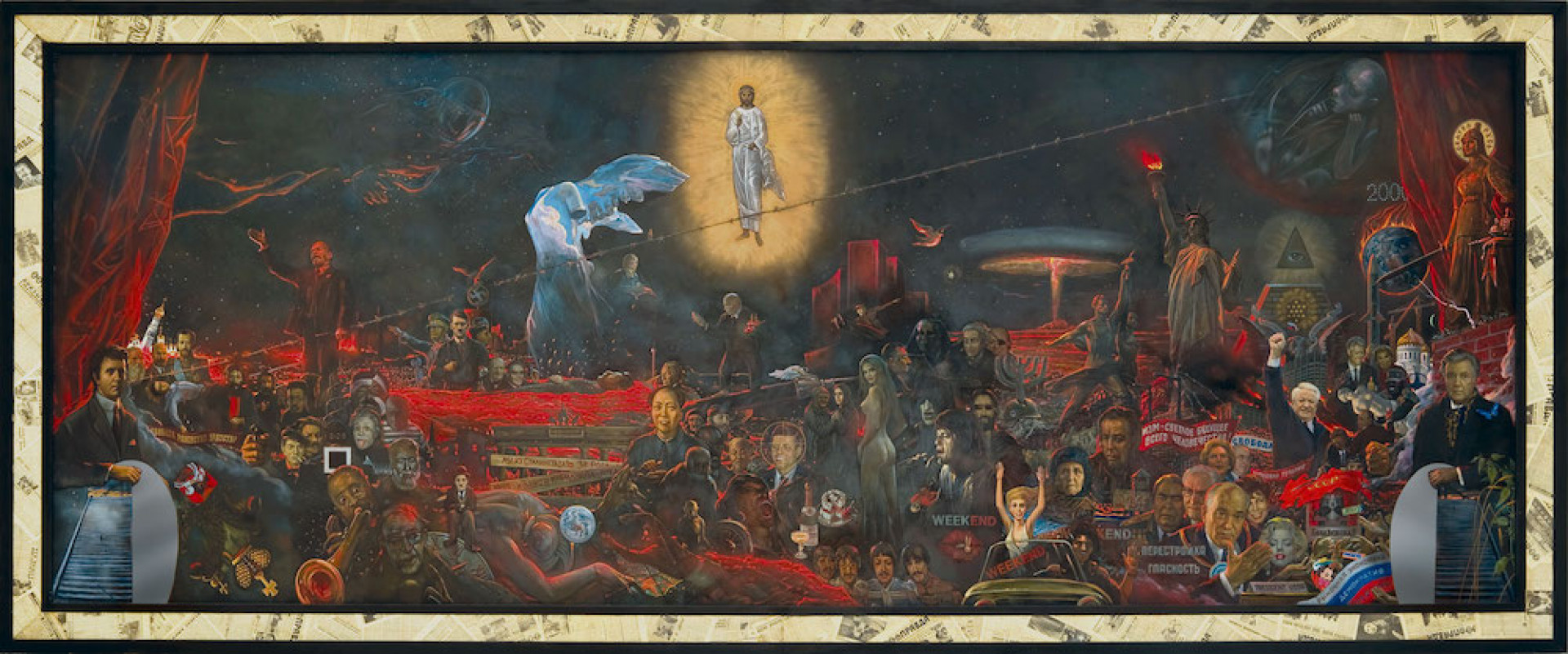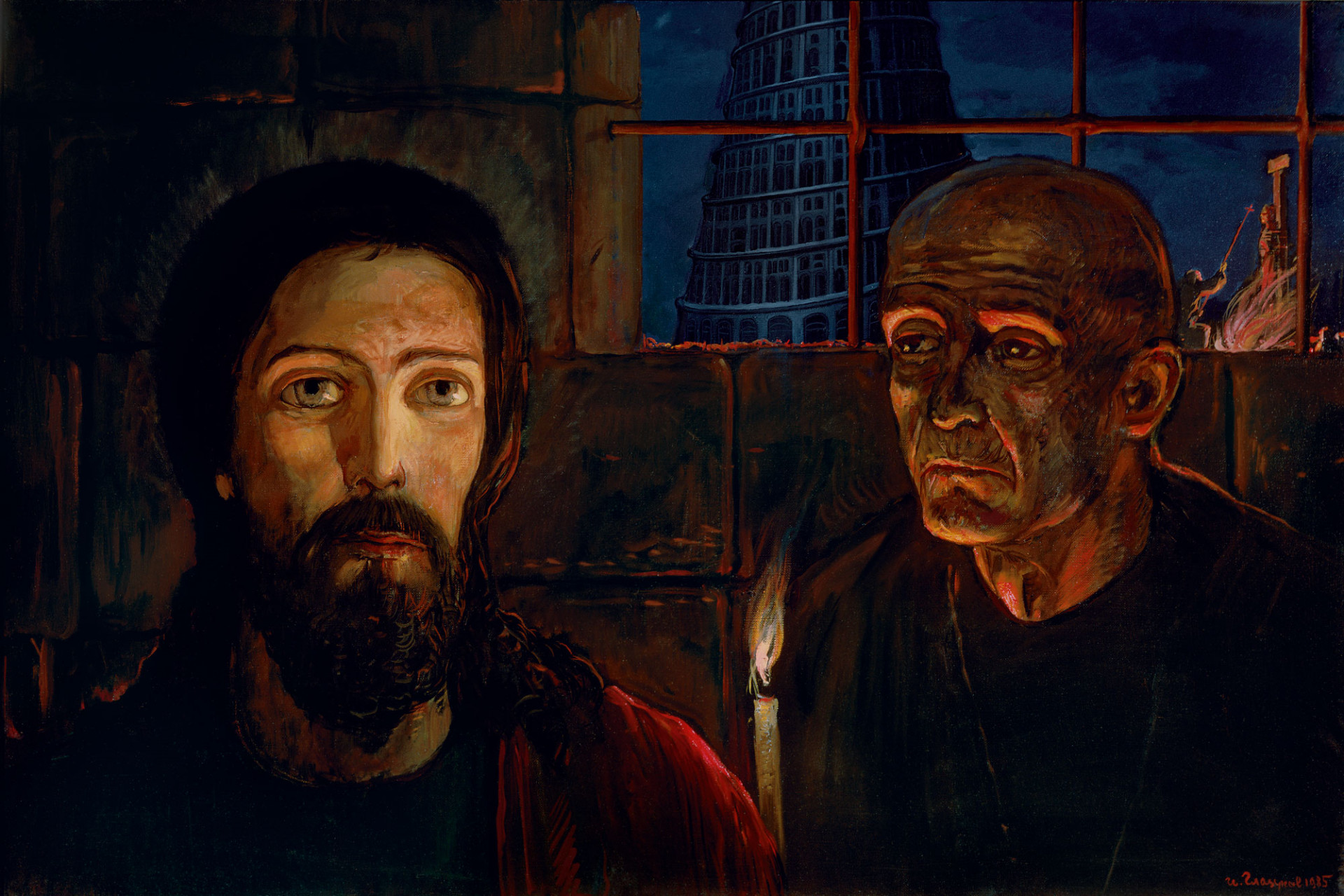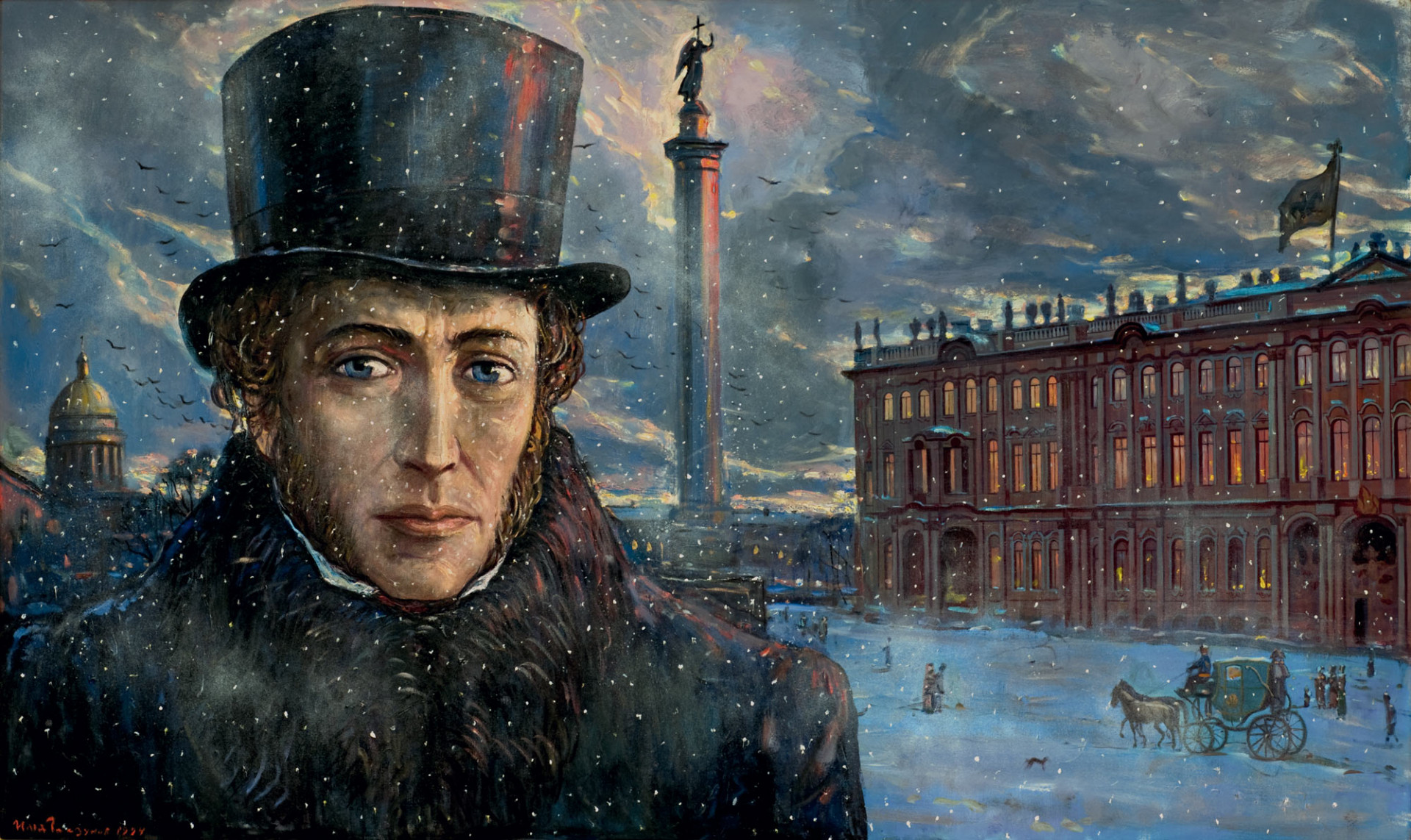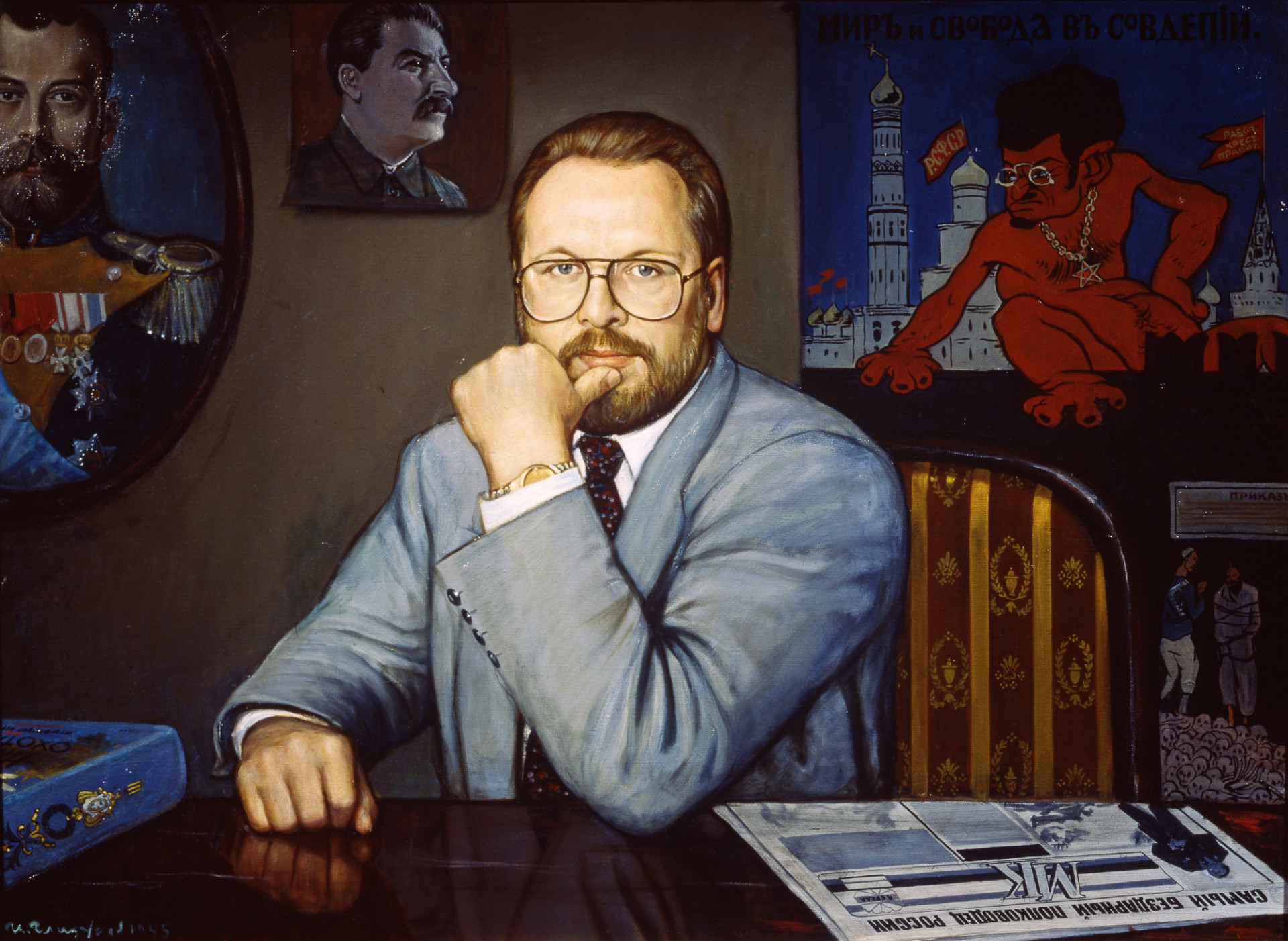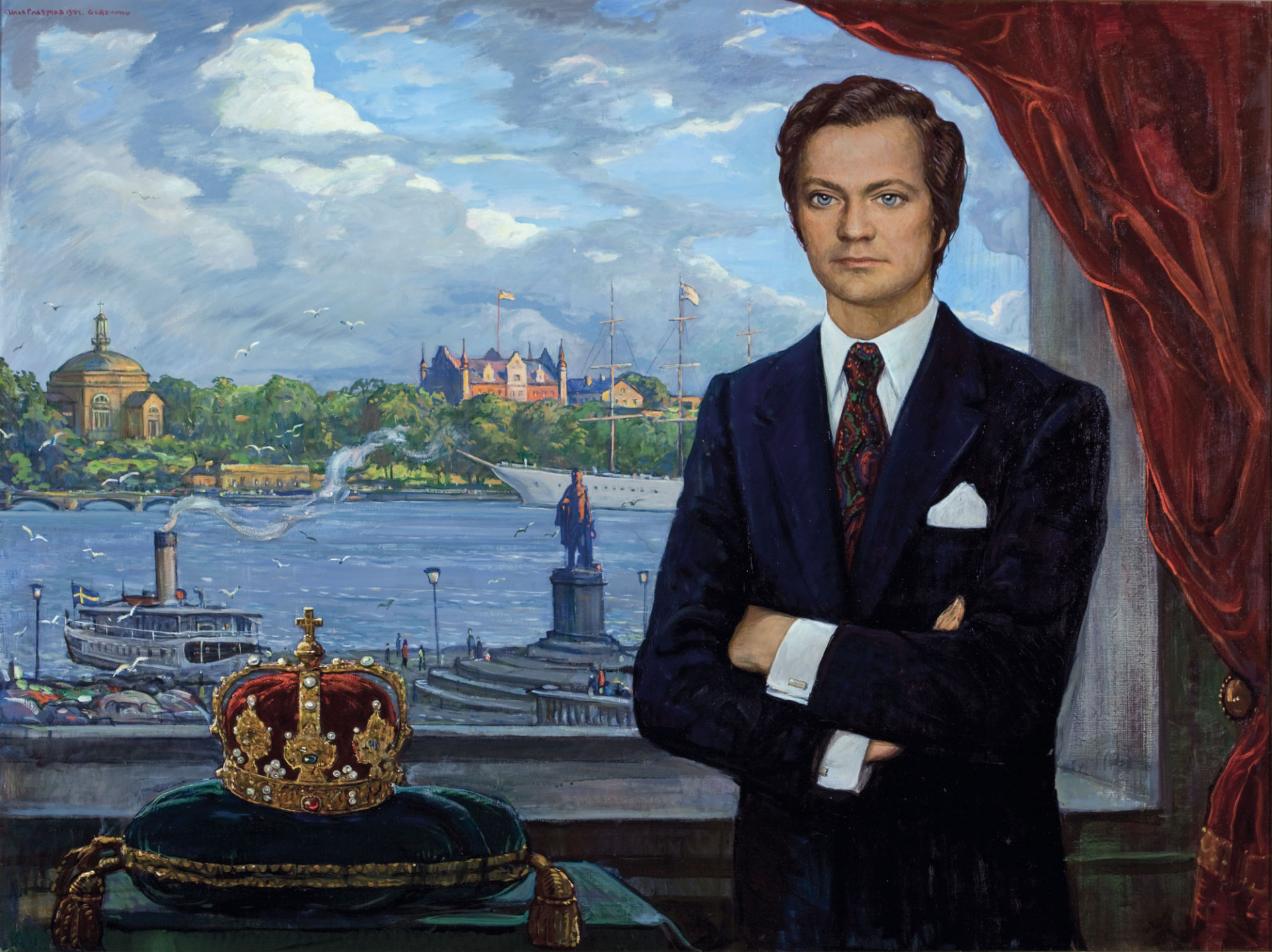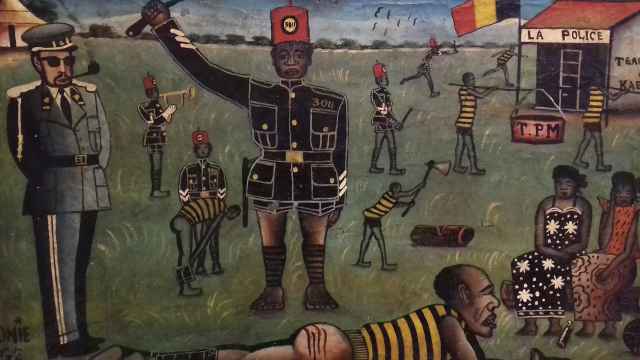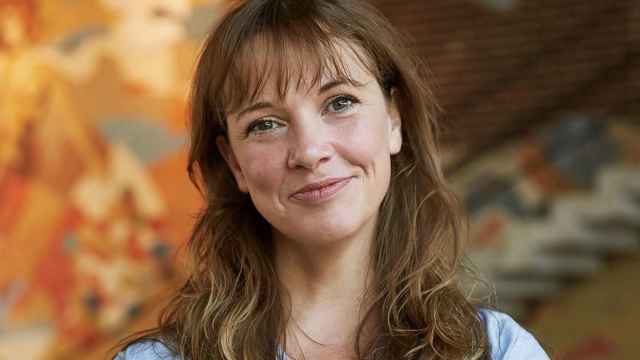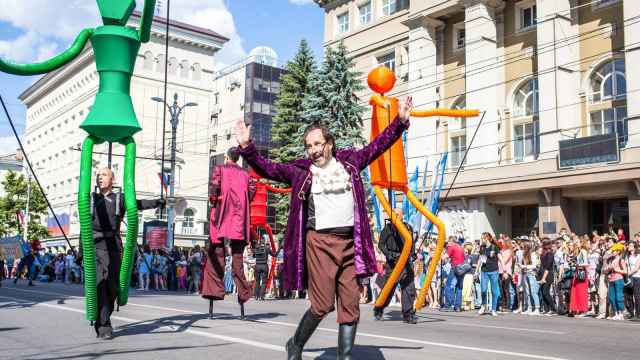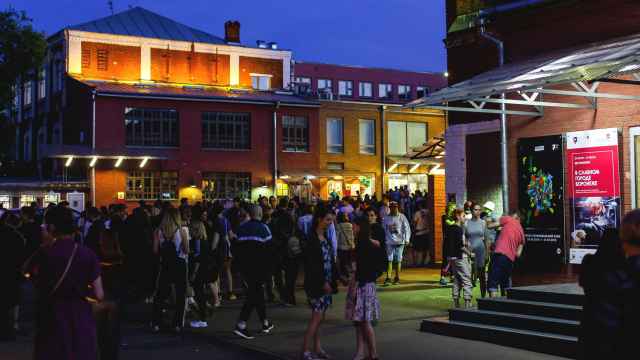Ilya Glazunov, one of Russia’s most popular and controversial artists, passed away on Sunday at the age of 87. A native of St. Petersburg, he graduated from the Repin Institute of Painting, Sculpture and Architecture. After winning the Grand Prix of the International Competition of Young Artists in Prague in 1956, he held his first solo exhibition in Moscow.
Glazunov was renowned for his portraits of famous personages, both Russian and foreign; illustrations for works of Russian literature; and later in life, religious and nationalistic depictions of Russian history. His enormous canvases are filled with dozens, if not hundreds, of figures depicting the gamut of contemporary and historical figures, from Prince Igor to Monica Lewinsky.
In 1976, Glazunov painted one of his first and best known historical works, “The Mystery of the 20th Century.” In it, an atomic bomb explodes over depictions of Nikolai II, Albert Einstein, John F. Kennedy, Vladimir Lenin, Adolph Hitler and Charlie Chaplin, among dozens of other leaders and cultural figures. Hovering above is an image of Christ, and standing in prison clothes is the writer Alexander Solzhenitsyn. For the ideological crime of depicting Solzhenitsyn, the Central Committee of the Communist Party considered exiling him from the Soviet Union. Instead, he was sent to Siberia to paint portraits of the workers of the Baikal-Amur Railroad.
On his return to Moscow, Glazunov continued to paint monumental canvases. By then, society and the political system were falling in sync with his views. In 1986, a large solo exhibition of his works was held at the Manege Exhibition Hall, and in 2004 a museum of his art and his personal collection of icons opened opposite the Pushkin Museum of Fine Arts.
Glazunov was the founder and rector of the Russian Academy of Painting, Sculpture and Architecture, the artistic director in charge of the restoration of the Great Kremlin Palace and a vocal supporter of the reconstruction of the Cathedral of Christ the Savior. He was the recipient of many state and foreign awards, including People’s Artist of the USSR, the State Prize of the Russian Federation, and the UNESCO Gold Medal for "outstanding contribution to world culture."
Glazunov will be buried in the Novodevichy Cemetery.
A Message from The Moscow Times:
Dear readers,
We are facing unprecedented challenges. Russia's Prosecutor General's Office has designated The Moscow Times as an "undesirable" organization, criminalizing our work and putting our staff at risk of prosecution. This follows our earlier unjust labeling as a "foreign agent."
These actions are direct attempts to silence independent journalism in Russia. The authorities claim our work "discredits the decisions of the Russian leadership." We see things differently: we strive to provide accurate, unbiased reporting on Russia.
We, the journalists of The Moscow Times, refuse to be silenced. But to continue our work, we need your help.
Your support, no matter how small, makes a world of difference. If you can, please support us monthly starting from just $2. It's quick to set up, and every contribution makes a significant impact.
By supporting The Moscow Times, you're defending open, independent journalism in the face of repression. Thank you for standing with us.
Remind me later.



